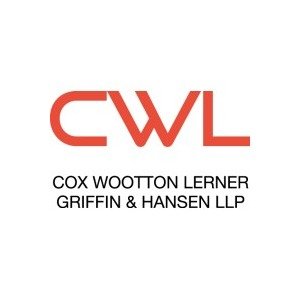Best Financial Services Regulation Lawyers in Honolulu
Share your needs with us, get contacted by law firms.
Free. Takes 2 min.
List of the best lawyers in Honolulu, United States
About Financial Services Regulation Law in Honolulu, United States
Financial Services Regulation in Honolulu, as part of the broader United States regulatory landscape, encompasses a range of laws and regulations designed to maintain financial stability, promote transparency, protect consumers, and ensure fair practices within financial markets. These regulations affect banks, investment firms, insurance companies, and other financial entities operating in Hawaii. The state of Hawaii adheres to federal regulations while also imposing state-specific requirements to address local issues and concerns.
Why You May Need a Lawyer
Individuals and businesses may require legal assistance in Financial Services Regulation in several situations. Common scenarios include navigating complex compliance requirements, dealing with regulatory investigations, facing enforcement actions, or requiring advice on risk management practices. Additionally, companies expanding into the Hawaiian market may seek legal guidance to understand local regulations and ensure their operations comply fully with both state and federal laws. A lawyer with expertise in financial services regulation can provide invaluable insights, mitigate legal risks, and offer strategic advice tailored to specific needs.
Local Laws Overview
Hawaii has several distinctive laws impacting financial services regulation. The state Department of Commerce and Consumer Affairs is the main regulatory body overseeing financial institutions, and they work alongside federal agencies like the Securities and Exchange Commission and the Federal Reserve. Key statutes include the Hawaii Revised Statutes Title 26 - Banks and Financial Institutions, which outlines licensing requirements, operational standards, and enforcement policies. Local laws also cover consumer protection issues, privacy regulations, and anti-fraud measures, necessitating careful compliance by any operating financial entity within the state.
Frequently Asked Questions
What is the role of the Department of Commerce and Consumer Affairs in Honolulu?
The Department of Commerce and Consumer Affairs (DCCA) in Honolulu regulates financial institutions, ensuring they follow state-specific regulations and handle consumer complaints related to financial services.
Are there specific state licenses required for financial institutions in Honolulu?
Yes, financial institutions must obtain state licenses to operate legally. This includes adhering to both state and federal compliance standards specific to their service offerings.
How do federal regulations impact financial services in Honolulu?
Federal regulations establish overarching standards for financial services that apply uniformly across all states, including Hawaii. Local entities must comply with these in addition to state-specific rules.
What are the common areas of regulatory compliance in financial services?
Common areas include consumer protection, anti-money laundering (AML) mandates, data privacy, capital requirements, and cybersecurity policies.
What are the penalties for non-compliance with financial regulations in Hawaii?
Penalties may include fines, sanctions, operational restrictions, and in severe cases, revoking of the operating license.
Does Honolulu have specific regulations related to digital currencies?
Yes, Hawaii has specific regulations for digital currencies, requiring licenses for entities engaging with digital currency transactions, and mandates disclosures to protect consumers.
How can a business ensure compliant operations in Honolulu?
Businesses should establish comprehensive compliance programs, remain updated on regulatory changes, and consult with legal experts for ongoing risk assessments and audits.
Are there special consumer protection laws in Hawaii's financial sector?
Yes, Hawaii enforces consumer protection laws requiring transparent business practices, fair lending terms, and responsive dispute resolution channels.
Can financial institutions in Honolulu be subject to federal examination?
Yes, federal agencies like the SEC and the Federal Reserve conduct examinations to ensure institutions comply with federal regulations alongside any state-specific checks.
How does one file a complaint against a financial service provider in Honolulu?
Complaints can be filed directly with the DCCA, which will investigate and address grievances according to state and federal laws.
Additional Resources
If you require additional help, several resources are available including the Hawaii Department of Commerce and Consumer Affairs, legal aid societies specializing in financial law, and the American Bar Association's financial services division. Professional organizations, like the Hawaii Bankers Association, also offer industry insights and are valuable resources for staying informed about regulatory updates.
Next Steps
If you need legal assistance in Financial Services Regulation, it is crucial to engage with a qualified lawyer experienced in both local and federal financial laws. Start by consulting with a financial law attorney who can assess your needs and devise a strategy to ensure compliance with all relevant regulations. It may also be helpful to attend seminars and workshops related to financial laws in Hawaii to better understand your obligations and rights. Taking these steps can provide peace of mind and help avoid potential legal pitfalls.
Lawzana helps you find the best lawyers and law firms in Honolulu through a curated and pre-screened list of qualified legal professionals. Our platform offers rankings and detailed profiles of attorneys and law firms, allowing you to compare based on practice areas, including Financial Services Regulation, experience, and client feedback.
Each profile includes a description of the firm's areas of practice, client reviews, team members and partners, year of establishment, spoken languages, office locations, contact information, social media presence, and any published articles or resources. Most firms on our platform speak English and are experienced in both local and international legal matters.
Get a quote from top-rated law firms in Honolulu, United States — quickly, securely, and without unnecessary hassle.
Disclaimer:
The information provided on this page is for general informational purposes only and does not constitute legal advice. While we strive to ensure the accuracy and relevance of the content, legal information may change over time, and interpretations of the law can vary. You should always consult with a qualified legal professional for advice specific to your situation.
We disclaim all liability for actions taken or not taken based on the content of this page. If you believe any information is incorrect or outdated, please contact us, and we will review and update it where appropriate.













